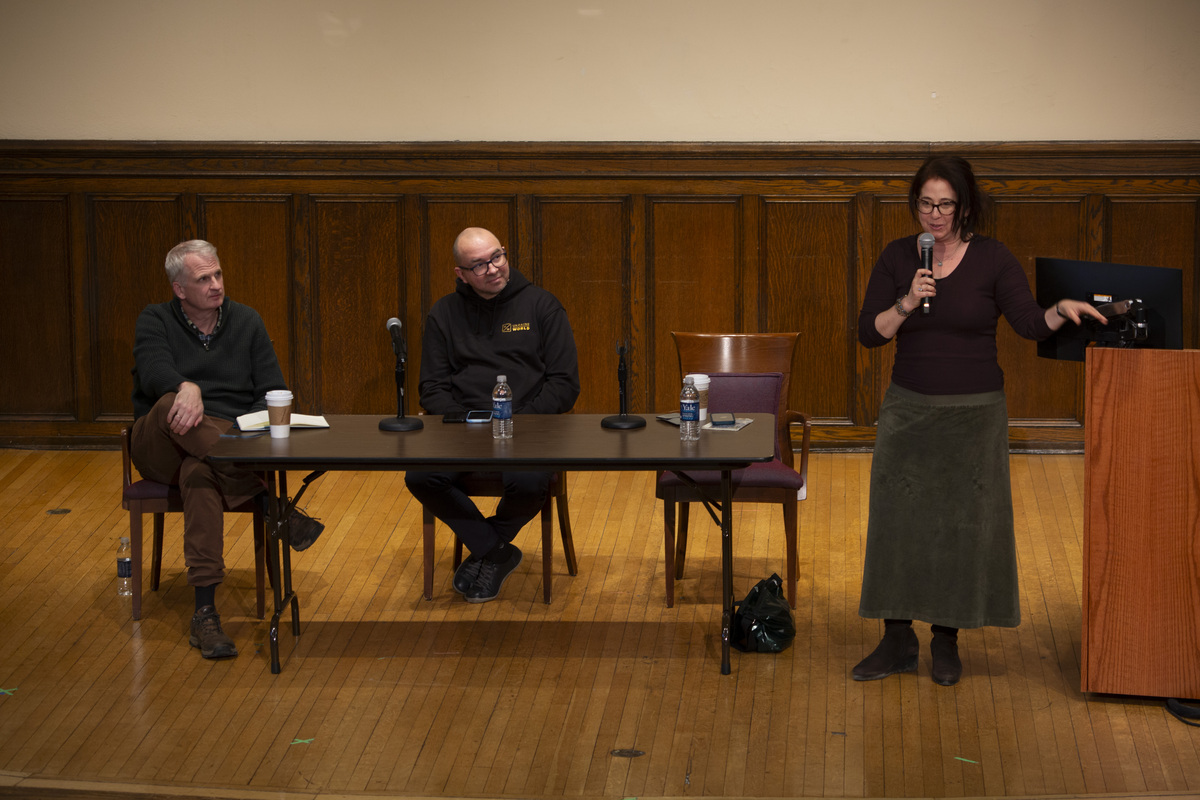‘Ordinary people doing extraordinary things’: Ukrainian philosopher and journalist shares insights on Russia’s war in Ukraine
Volodymyr Yemorelenko visited Yale last week ahead of the second anniversary of the full-scale Russian invasion in Ukraine.

Courtesy of Roma Mykhailevych
Yale’s Ukraine House hosted a panel discussion on Thursday, Feb. 22 between Ukrainian philosopher, journalist and activist Volodymyr Yermolenko and Yale history professor Timothy Snyder.
The discussion, which was moderated by Marci Shore, an associate professor of history, highlighted the current state of the war — particularly on a humanitarian scale.
“It was great to hear from Professor Snyder, Shore and Volodymyr Yermolenko during such an important time in Ukraine’s fight against Russian invasion,” said Ukraine House at Yale member Yegor Rubanov ’27.
Yermolenko has spent extensive amounts of time in war-stricken areas of Ukraine. He has traveled around the world to engage in discourse about the war and spread information about what is happening on the frontlines.
With his wife, Yermolenko produces a podcast called UkraineWorld, which has been reporting on Russia’s invasion since 2022. Their podcast provides a weekly English-language analysis of the state of the war.
In the podcast, Yermolenko shares human stories and invokes criticisms of the Russian operation in Ukrainian territory as “an attempt to not be silent, to overcome the silence,” he said.
When Shore asked Yermolenko about the purpose behind his continued journalistic work, he emphasized the importance of giving voice to the struggle Ukrainians face along the frontlines. Just two days before arriving on Yale’s campus, Yermolenko was speaking with civilians and Ukrainian soldiers in the formerly occupied region of Kherson Oblast.
Yermolenko, Snyder and Shore have maintained correspondence throughout the war, and Snyder has traveled to Ukraine amid the war as well.
Snyder spoke about the contrast between “normative” and “normal experiences” in areas affected by the war. Snyder shared his interaction with an elderly woman in Kherson Oblast and her effort to establish a “normative life” within her new norm of being surrounded by destruction.
“Normal in that village was all of the rubble, but what she meant was in the sense of normative, in the sense of following norms, in the way things should be,” said Snyder.
Snyder also spoke about the difference between “deoccupation” and “liberation.” He said that regions that have been fought over throughout the war remain “deoccupied.” Snyder said that he has observed a struggle between normal and normative.
Snyder and Yermolenko both spoke about how the human experiences of the war in Ukraine are, as Shore put it, “situated beyond a place that reason can reach” in response to a question Shore asked.
As a journalist, Yermolenko said that he has spent time throughout the war exploring its human toll. Now, he said, he spends “more time driving vehicles to the frontline than reading.”
Yermolenko said that there is “a lot of exhaustion in Ukraine,” noting that for Ukrainians, the war has been ongoing since 2014. But, he said, the spirit and resolve of the Ukrainian people remain.
“Ukrainians are not going to surrender,” Yermolenko told the News.
A recording of the full panel session can be accessed online.







